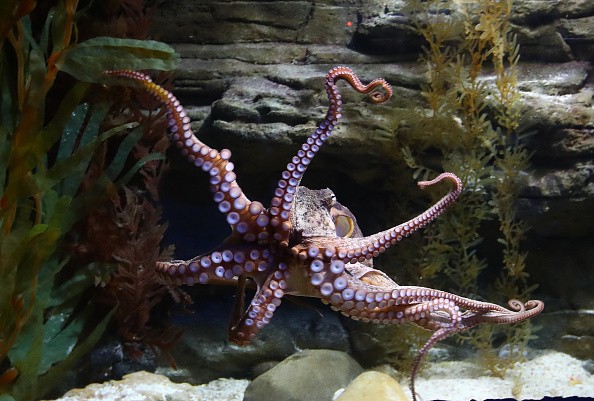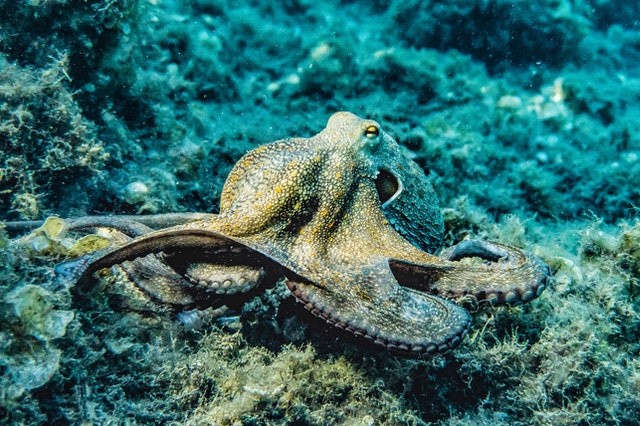A new study uncovers the sophistication of the inner experiences of animals, as a cephalopod documentary contends for an Oscar. According to the study, octopuses can feel physical and emotional pain.

The Attack
An octopus curls up underneath a rock, but she can still be located by the shark following her scent. The shark attacks one of her arms and rolls over, again and again, twisting the limb that was trapped between its jaws until it disconnects.
The shark then swims away with the arm of the octopus inside its mouth, spitting out rocks and sand obtained in the scuffle.
Where her arm was, the octopus possesses a stub of bright-white flesh. She retreats from the location of the incident slowly and without her normal flair, almost moving along the seafloor on her way back to her lair.
My Octopus Teacher
The scene is from a film recommended for the Best Documentary Academy Awards for this year, My Octopus Teacher, which will take place on the 25th of April.
Human watchers empathize with this cephalopod, whose curiosity and intelligence are visible in the documentary. But what might she have gone through during the horrifying shark attack?
Until currently, there was no meticulous study showing that invertebrates pass through the emotional component of pain. A study released in iScience in March made available the strongest proof yet that octopuses feel pain just like mammals do, boosting the case for initiating welfare regulations for these animals.
Also Read : WATCH: Rare Clip of Elusive Deep Sea Giant -- Seven-Armed Octopus Devouring Helpless Jellyfish
The Two-part Experience That Happens in the Brain
The experiment "shows beyond skepticism that [octopuses] have the ability to experience pain," Lynne Sneddon, a fish pain expert at the University of Gothenburg in Sweden, who was not part of the study, reveals.
Much of what we might have in mind as a reaction to pain, like pulling your hand from a hot stove, is truly a reflex. It occurs impulsively, without getting the brain involved, in almost all animals that have a nervous system.
Pain is a two-part experience that happens in the brain. The first part is the consciousness of a physical sensation, like the palpitation of your burned hand. The second, more complex part is the emotional experience related to that sensation: noticing that your palpitating fingers and blistering skin are leading to discomfort. It is this emotional part of the pain that is important for the welfare animal, ethicists say. But it is hard to measure.

Conscious Pain
A pain researcher at McGovern Medical School at the University of Texas Health Science Center at Houston, Terry Walters, who gave a review for an early draft of the research but was not directly part of the study said: "I don't think there's any way of demonstrating that another organism, even another human, is truly going through conscious pain the way that we ourselves do."
He says the closest we can get for other species is discovering what experiences and situations they try to prevent.
Related Article: World's 'Angriest' Octopus Attacks a Retired Lifeguard
For more news, updates about octopuses and similar topics don't forget to follow Nature World News!
© 2025 NatureWorldNews.com All rights reserved. Do not reproduce without permission.





